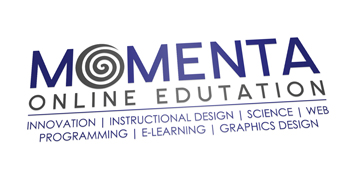and an exciting project coming soon!
Momenta Learning
A blog on topics related to Elearning, online education, and instructional design.
Tuesday, February 26, 2013
Monday, February 25, 2013
Is being an engineer a roadblock to becoming an instructional designer?
Wednesday, February 20, 2013
A successful MOOC may require a great development team
Monday, February 18, 2013
What Proctoring Model Do MOOCs Need?
But the question is then, how to evaluate a large number of students? As of now, very few students complete the course to the end, that is, a very small percentage will receive the MOOC certification, but even in this case the number of students surpasses the number of students in your regular college level online class, these cases can be easily handled by proctoring services because they can accommodate such population. If it is true that MOOC courses can be used as credit for college level courses then a way has to be found to accommodate a proctoring service for thousands of students. Of course, this is an area of opportunity to companies offering these services and I am sure they are positioning themselves to do this, but I am not sure if they are prepared to give this service to MOOCs. See, the proctoring service relies a lot on doing everything online and remotely. So, if you have a less than reliable internet connection that allows you to take a MOOC course, it is not going to cut it when it comes to proctoring. The situation here is that a lot of people taking these MOOCs are not in the US, and many times they are not even in developed countries. There is also the language barrier. If you are not a native English speaker, or if you don't have the college level of English required, you will have problems using the proctoring service since there is a point when the student will meet the proctor during testing.
I think the solution is around the corner because there are established services that provide testing for university admission tests (think GRE and TOEFL) all over the world. The model in this case follows partnerships with local companies that serve as local testing centers. So, it would make sense that proctoring services will try to find partners in those countries where the service is demanded, and special cases will have to be handled accordingly. Will it be cost-effective? I don't know, but the sheer number of students might make it a profitable business at the end. I don't think a proctoring service can do it by itself because the technology has not been equated all around the globe to operate every aspect of the service online, that is, testing centers might be needed anyways. This will give MOOC credits the respect they need in order to be accepted by other entities.
Tuesday, February 5, 2013
Why you shouldn't tear MOOCs apart because one of them had a glitch...
Monday, February 4, 2013
The skills you need to develop in order to take on a MOOC course
- Prioritize tasks: a MOOC course has lots of information to digest, don’t fool yourself into believing that the first thing you do is watch the lecture videos. The first day the MOOC opens (or the first day you log in) read the syllabus and familiarize yourself with the course pages, the course navigation and where all that important information is in the course pages. Then you can watch the videos, some course have notes to download, if you can, download the notes and print them out. This will help you in taking notes when you watch the lectures. DO NOT attempt to take the quizzes just yet or start working in the assignments unless the instructor tells you to do so. If you are able to see the quiz questions and assignment descriptions beforehand you may do so, but I really doubt you will know what they are talking about at this stage.
- Distribute the work: this is where that time management skill comes in handy. The course usually has a series of lecture videos to watch during the week, distribute the time to watch these videos during the week. After watching a video, do not attempt to do something else. Believe me, you have done plenty. You may take a break for a few minutes or a couple of hours but don’t try to attempt another task immediately. Also, dedicate time to work in the assignments and quizzes at different times when you watch lectures. You need to spend some time in the discussion forums as well, plan this at a different time from other tasks, if during you assignment work you have questions, make a note of them and then try to resolve them during your discussion forum time.
- Spend time offline: this is especially true for reading assignments, if you try to do your reading while you are online, you will be tempted to watch cat videos, check your Facebook page, your tweeter feed, etc. Work on your assignments offline too.
- Play well with others: participate in those discussion forums and give a hand to your fellow student, this will be beneficial to you in the long run. Also, think about the questions or answers you want to post. I suggest you write first on a blank document in your favorite text processor, then you just copy and paste it in the discussion forum box.
- Don’t chew more than you can swallow: unless you are a full time student and you don’t have to work for a living, don’t take more than one course at the same time. One is plenty enough, especially if your days are filled with other responsibilities.
